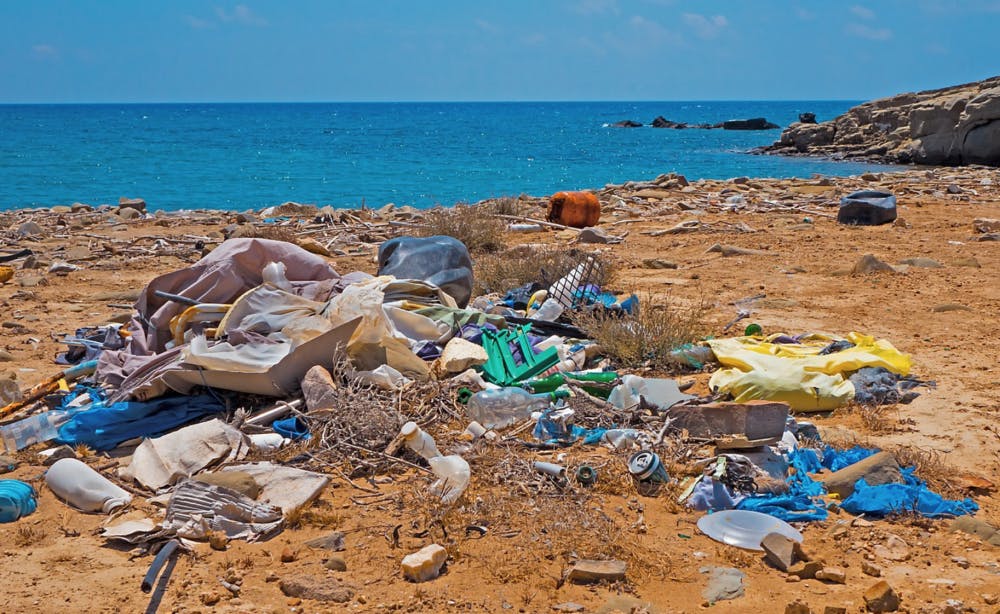By: Naiyi Jiang
“Humans have produced over eight-trillion kilograms of plastic, most of them are still here as a waste,” said David Katz. In order to solve marine plastic waste, David Katz founded The Plastic Bank at 2013, the world’s only organization to monetize plastic waste and provide an opportunity for the world's disadvantaged to collect and trade plastic waste as currency. While many activists and organizations are working to clean up the plastic already in the ocean, David had to think outside of the traditional method by trying to stop the plastic going to the ocean in the first place. He believes that if people cannot solve the basic problems like buying food for their children or shelter, recycling is not even in the realm of possibility.Currently, Plastic Bank has four stations around the world, including Haidi, Philippians, Brazil and Indonesia. Majority of plastics come from countries that have limited access to disposal and recycling, so by promising the people a steady pay in those countries, the company has attracted a lot of local people to work. The workers’ job is to collect recyclable plastic from door to door and block to block, and at the end of the day they bring what they had collected to the plastic bank in return for money. This money goes directly into their bank account, which the company provides them, and those accounts are in a form of digital wallets. Plastic Bank had several partnerships with larger companies to promote a sustainable environment in their products, like Marks, Spencers, Shell and Henkle. They had to start developing their business in a more sustainable way; for example, Henkle started using sustainable packaging and recycling. In 2016, Henkel used recycled plastic in the packaging for around 1.1 billion detergents, household cleaning and beauty care products globally. Plastic Bank also has its own shops that sells sunglasses that are made by the recycled plastic, reusable bags and organic, environmental-friendly clothes. Whichever purchase you make can help them remove 100 plastic bottles from the ocean.
“Every time you buy something with excessive plastic and every time you buy something with single-use plastic, you are voting for that to continue,” David said. Have you ever thought about the packaging you got from Amazon shipping? How much bubble wrap did they use just for a small lipstick you bought? Even at in-store locations like Walmart, you can take as many plastic bags as you want for free. Why is that? As for our future generations, we should start to encourage living a sustainable life. Right now, we can start by just simply say ‘no’ to plastic.
Even though a large amount of the plastic existing in oceans originates in poor countries, almost everyone around the globe interacts with the plastic in a daily basis; therefore, everyone is counted as one of the “contributors” to this disaster happening in the ocean right now. This issue has many ramifications. You may have noticed some pictures showing marine animals trapped in the trash that humans had thrown away as a waste. Sometimes animals eat this plastic, and it goes up the food chain, ending up in the food we eat. Is this serious enough to get your attention to reevaluate using plastic in our daily life?
“If you have some ambition about changing what is occurring in the ocean, then participate,” said David Katz. As one of the members living on the earth, human beings must take responsibility to take care of the other members that also live on this planet.
Here are some ways to reduce plastic use on a daily basis:
- Take your own reusable water bottle.
- Use your own cloth bag to go grocery shopping.
- Recycle plastic properly.
- Avoid products containing microbeads (tiny plastic particles commonly found in face wash and body scrubs).
- Using your own steel straw instead of plastic and your own utensils.

